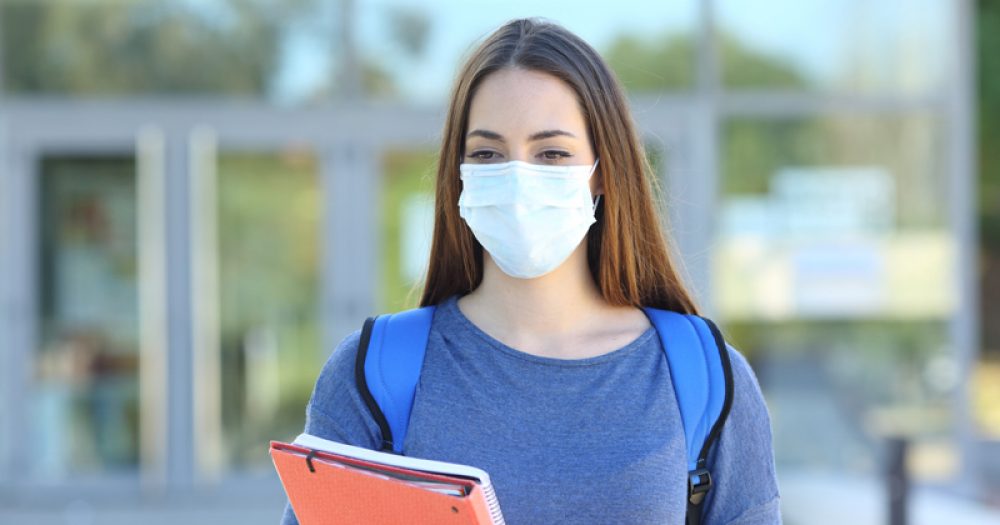Learners and staff at colleges in high-transmission areas will be required to wear face coverings following a U-turn by the government.
The Department for Education has tonight confirmed that it will revise its guidance on the use of face coverings in schools to state that in areas of national government intervention, face coverings “should be worn by adults and pupils in secondary schools when moving around the school, such as in corridors and communal areas where social distancing is difficult to maintain”.
The revised approach “will also apply to further education colleges”, the DfE said.
In areas not highlighted as high-transmission, schools and colleges will get the “discretion” to require face coverings in communal areas “if they believe that is right in their particular circumstances”, the DfE said.
The move follows mounting pressure on ministers to review guidance on face coverings, which currently states that face coverings are not required in educational settings in England because “pupils and staff are mixing in consistent groups, and because misuse may inadvertently increase the risk of transmission”.
Ministers had insisted up until this morning that they had no plans to change the guidance.
But the decision this week by the Scottish government to make face coverings mandatory for high school pupils, and recently-updated World Health Organisation guidance stating pupils aged 12 and over should wear masks “under the same conditions as adults” prompted headteachers to call for updated advice.
Gavin Williamson, the education secretary, said the government had “listened to the latest medical and scientific advice”.
“We have therefore decided to follow the World Health Organisation’s new advice. In local lockdown areas children in year 7 and above should wear face coverings in communal spaces.
“Outside of local lockdown areas face coverings won’t be required in schools, though schools will have the flexibility to introduce measures if they believe it is right in their specific circumstances. I hope these steps will provide parents, pupils and teachers with further reassurance.”
Geoff Barton, the general secretary of the ASCL school and college leadership union, welcomed the move, saying it had become “inevitable that the policy on face coverings would change” following guidance from the World Health Organisation.
“We recognise that the government in Westminster has responded to our call for a quick direction on this matter with the reopening of schools imminent,” he said.
“The new policy is discretionary, other than in places where coronavirus restrictions apply, and secondary school and college leaders will welcome the flexibility this affords them to decide what best suits their circumstances. We look forward to seeing the full guidance as early as possible.”






This is an appalling decision, especially as there is no scientific study detailing this risk of mask misuse or their use on mass by the public. All the research done so far is in a clinical setting. There has been no large study of use by the general public and inappropriate mask use is likely to cause more harm than good. I am at a loss as to why we are following the advice of WHO, as in March they also said there is no evidence to support the wearing of masks to prevent transmission.
The problem is that ‘the problem’ is running faster than the solution. Every day the world at large is breaking new ground. We have to find a way to mitigate risk, and there can be no long term study on mask wearing as the ‘experts’ are too busy firefighting.
So, students have to return to college. They are in a low risk group. Providing that as many steps are taken to reduce spread and contagion then the system will return to normal. The economy of the UK, and every other country cannot take the strain much longer.
We have to live with this dreadful circumstance and face up to the fact that most will survive intact. It’s like fighting a war and not expecting any casualties. Managing risk is the new mantra.